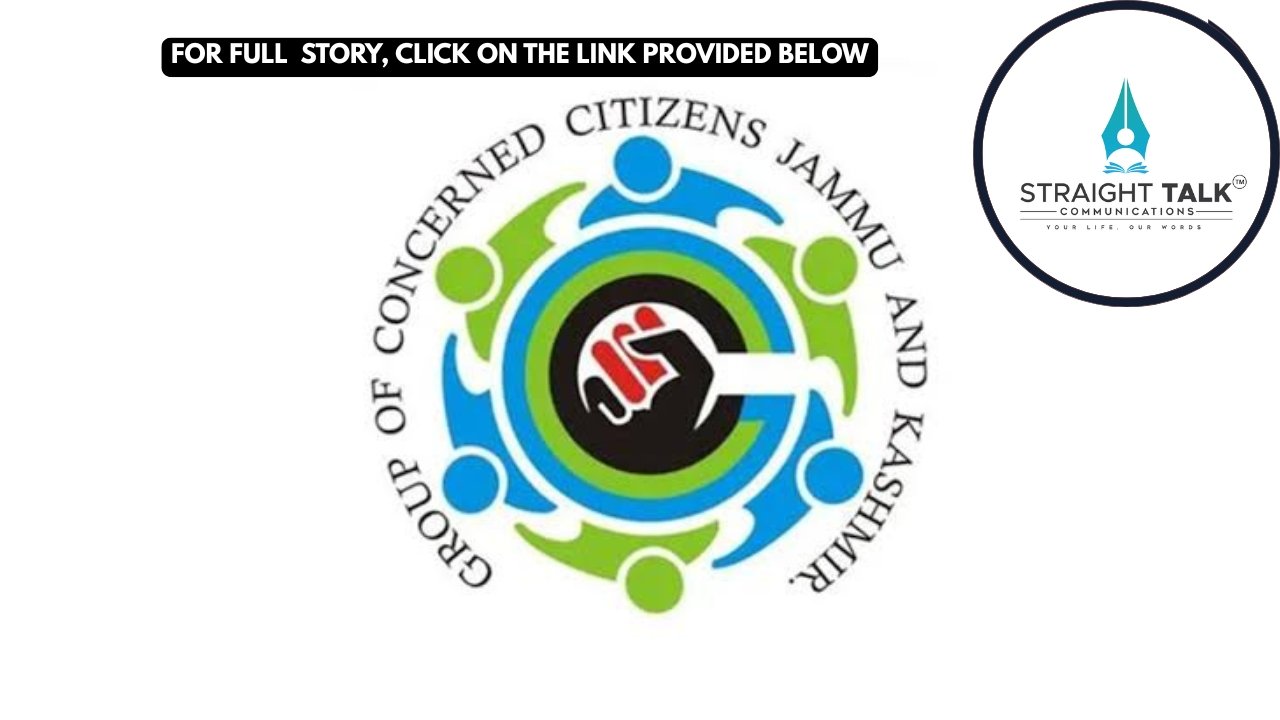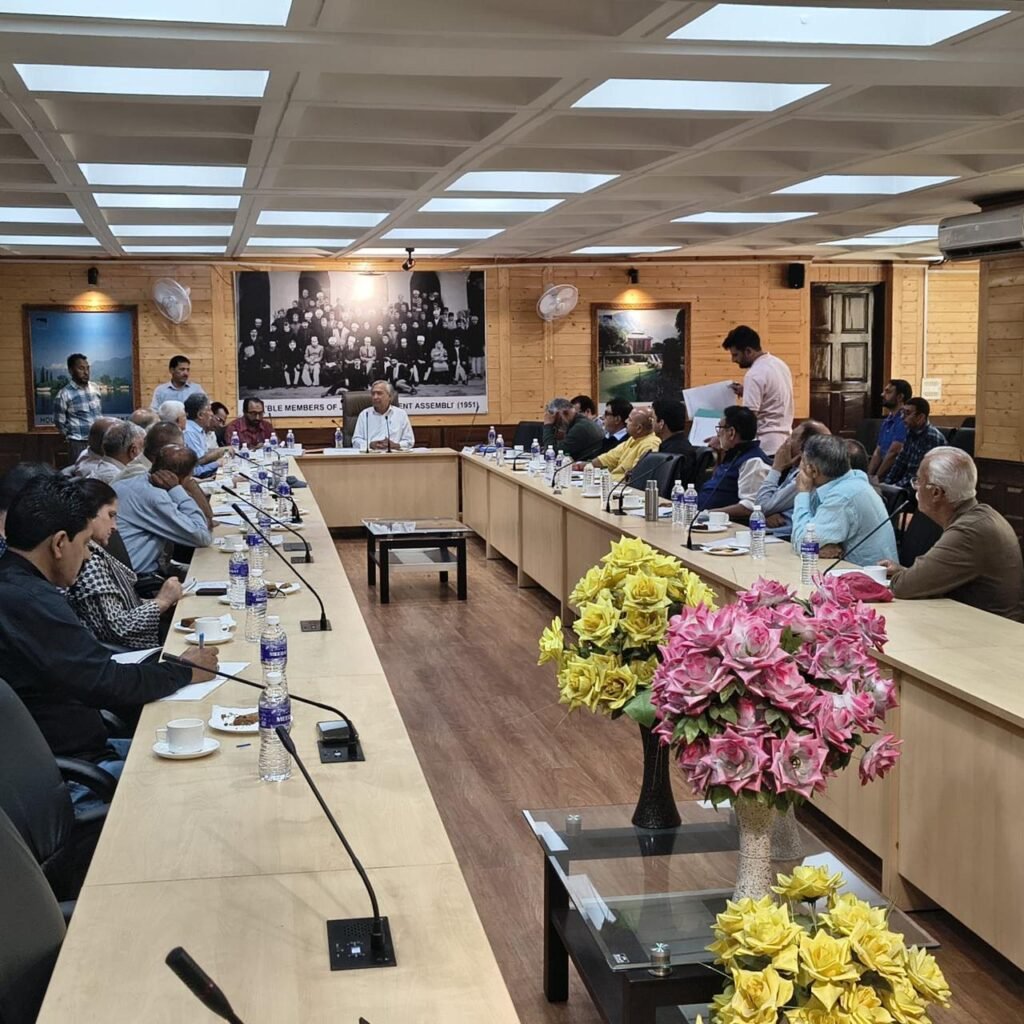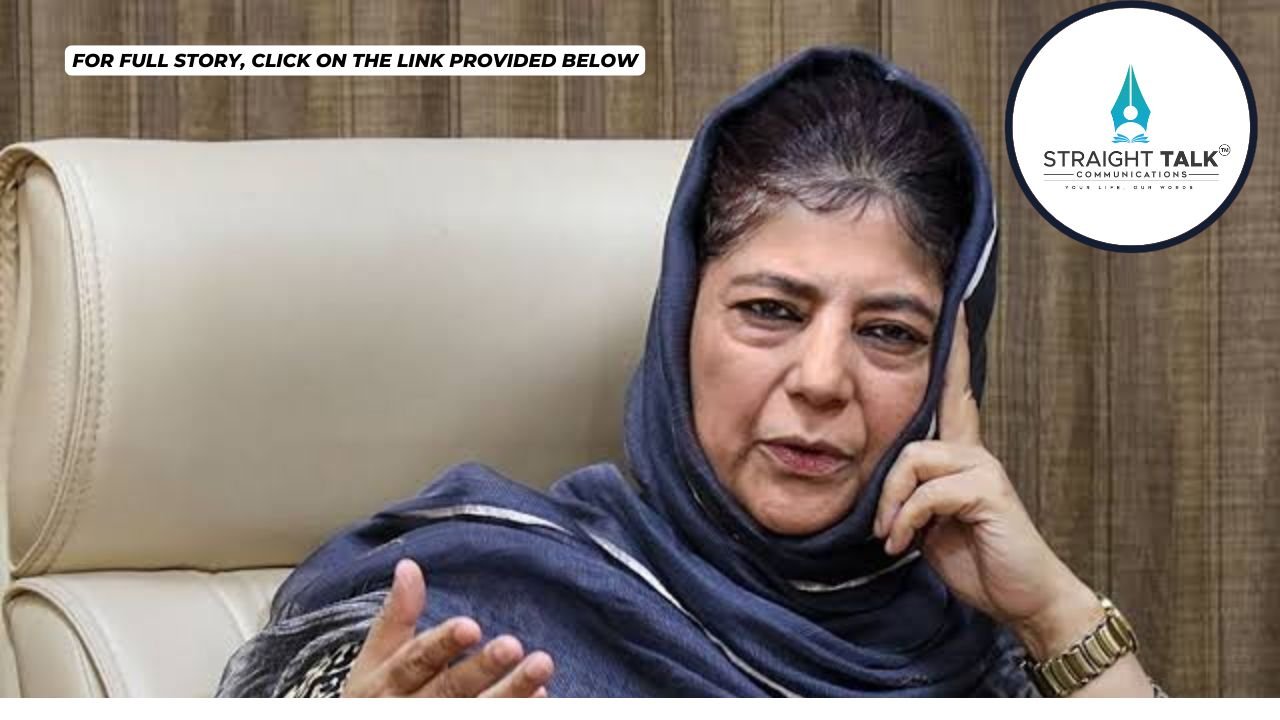COMMITTEE ON ENVIRONMENT: GCC flags grave environmental criss; urges special laws to protect natural resources


STC NEWS DESK
SRINAGAR, JULY 10 (STC): The Group of Concerned Citizens (GCC) – J&K has urged a special legislative dispensation to protect water bodies and other natural resources in Jammu & Kashmir.
In a meeting with the J&K Legislative Assembly “House Committee on Environment” here today, the Group sounded alarm on ” fast depleting water resources and green cover pushing entire J&K to the cusp of an environmental disaster” and proposed the Government come up with a ” Water Bodies Conservation Bill ” and a ” Climate Resilience and Glacier Protection Bill” in the next Assembly Session.
The unprecedented changes like heatwaves, erratic rainfall, and declining snowfall, it said, stemmed not only from global warming but also from local factors such as unregulated construction, deforestation, and rising vehicular emissions.
The GCC asserted that a “J&K Climate Action Plan” be drawn and put in public domain, alongwith keeping close tabs on progress being made towards India’s Net-Zero 2070 targets. It demanded a thorough review of afforestation initiatives and the urgent implementation of low-carbon, climate-resilient development policies.
Vehicular pollution was also highlighted as a pressing issue, with the Group noting that Jammu and Kashmir ranked third in the country in terms of household vehicle ownership, at 23%. This has led to a significant decline in urban air quality.
To address this, the GCC proposed introducing an odd-even vehicle movement policy in major cities, expanding and electrifying public transportation through trams and CNG or electric buses, and strengthening the “Pollution Control Committee” with increased authority for an effective oversight, regulation and control.
The GCC raised serious questions over flawed or missing Environmental Impact Assessments (EIAs) for major infrastructure projects, including tunnels on the Srinagar-Jammu highway and the Panjtarni–Amarnath route. It warned that such lapses could lead to escalation in landslides, soil subsidence, erosion and instability.
The Group called for an immediate audit of 5 to 10 key projects to check for EIA compliance and demanded greater transparency in the process.
Another area of concern was the large-scale and unregulated conversion of agricultural land, following recent amendments to the Agrarian Reforms and Land Revenue Acts. The Group said this trend threatened long-term food security and ecological balance. It recommended encouraging vertical housing developments while placing stricter limits on the conversion of farmland to non-agricultural uses.
The GCC drew attention to the steady decline of major lakes and rivers across the region. It cited the deteriorating condition of Dal Lake, the underfunded efforts at Wular, neglect of Anchar, and the precarious state of Manasbal.
It also mentioned that rivers such as the Jhelum, Tawi, and Chenab are suffering from encroachments, untreated sewage, and plastic pollution. The group demanded that the government launch dedicated river restoration initiatives similar to the Ganga and Yamuna clean-up drives. It suggested empowering local bodies and NGOs to lead such efforts, citing the recent revival of Khushalsar and Gilsar lakes by the NGO Ehsaas as a successful model.
Concerns were also raised about the state of wetlands and wildlife sanctuaries. The Group said Ramsar sites such as Hokersar and Surinsar-Mansar were under threat due to encroachments, pollution, and poor management. It requested that the House Committee conduct on-site assessments and independently verify data concerning migratory bird populations and wetland health.
Solid waste management, especially plastic pollution, was flagged as a major public health risk. The GCC said the Achan dumping site posed a severe hazard and lacked scientific management.
Dr Fiaz Fazili, a healthcare policy analyst and safety expert, informed the committee that toxic emissions from the site were linked to rising cases of cancer, infertility, respiratory illnesses, and allergies among people living nearby. The group called for immediate testing of toxic gas levels in line with OSHA standards and the issuance of public health advisories. It also said the existing ban on single-use plastics was not being effectively implemented and advocated for the enforcement of the polluter-pays principle, greater private sector involvement in waste management, and the promotion of biodegradable alternatives.
The House Committee chairman MY Tarigami acknowledged the seriousness of the issues raised and assured the GCC of early and prompt action.
In its concluding appeal, the GCC urged the Committee to recommend to the Government “expediting environmental policy reforms, enforce existing environmental laws strictly, and institutionalise the involvement of citizens, NGOs, and experts in restoration and conservation efforts across Jammu and Kashmir.
It’s notable, the meeting was presided over by Chairman of the Committee, Mohammad Yousuf Tarigami and attended by MLAs Peerzada Mohammad Syed, Yudhvir Sethi, Choudhary Zafar Ali Khatana, Peerzada Feroze Ahmad, Mushtaq Ahmad Guroo, Irshad Rasool Kar and members of the Committee.
Group of Concerned Citizens (GCC) led by its Chairman Khurshid Ahmad Ganie. The GCC team included G. H. Kango, G. J. Nehvi, Abdul Rashid Khan, Ab Majid Bhat, Ms Naseem Lankar, Latif-Ul-Zaman Deva, Khaleeq-ul-Zaman Butt, Syed Kifayat Hussain Rizvi, Dr Fiaz Fazili, Er Hakim Iftikhar, Er Iftikhar A. Drabu and Mohammad Rafi.
(STC)







